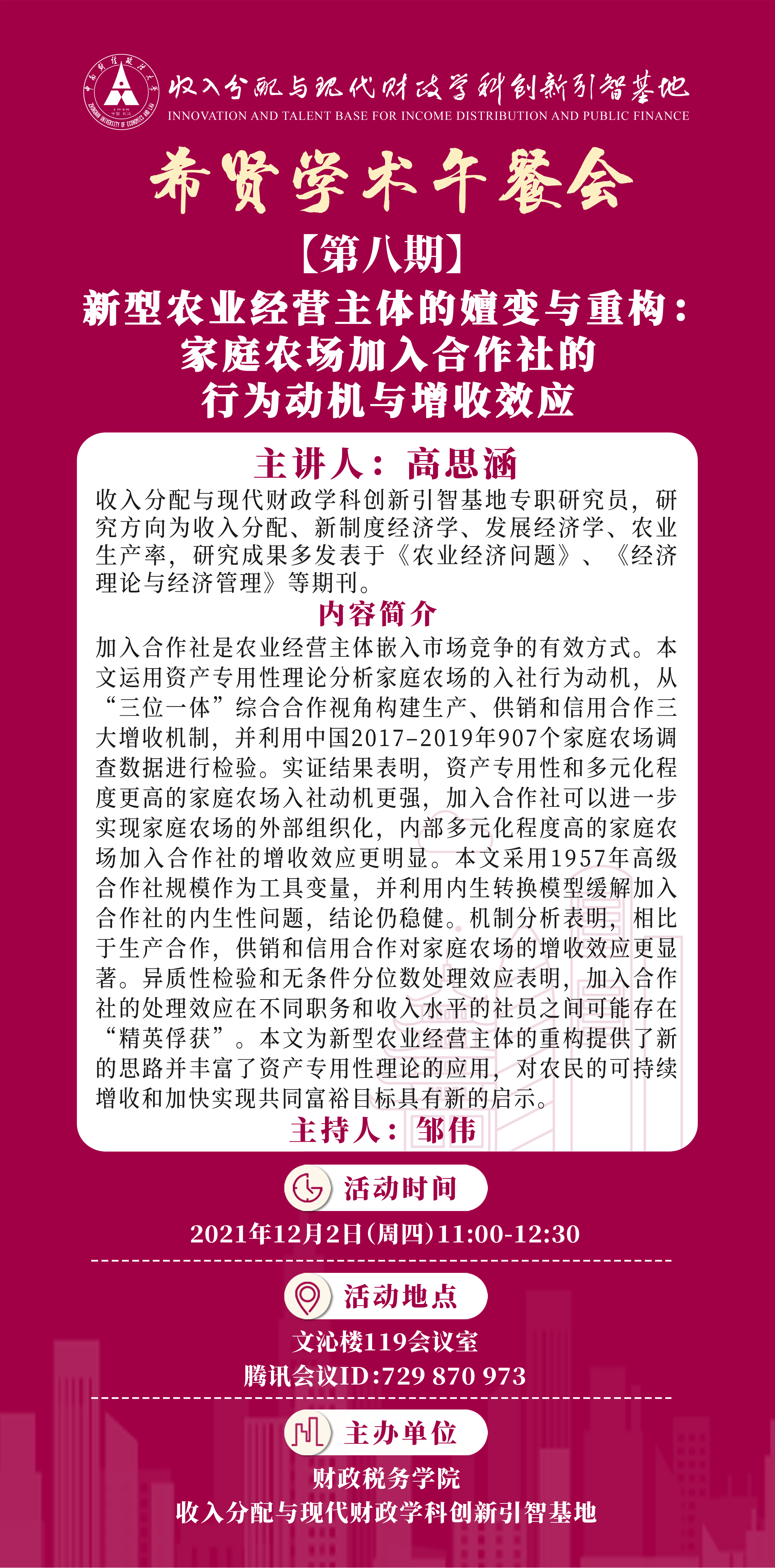
Title of Lecture: Transmutation and Reconstruction of New Agricultural Business Subjects: Behavioural Motivations and Income-Generating Effects of Family Farms Joining Cooperatives
Time: 11:00-12:30, Thursday, 2 December 2021
Venue: Conference Room 119, Wenqin Building / Tencent Meeting ID: 729 870 973
Moderator: Dr. Zou Wei
Presenter: Dr. Gao Sihan
  Dr. Sihan Gao is a full-time researcher at IIDPF, with research interests in income distribution, new institutional economics, development economics, and agricultural productivity.
Abstract:
  Participation in cooperatives is an effective mode for agricultural operators to embed themselves in the market competition. Using asset specificity theory to analyse the motivation of family farms to join cooperatives, this paper constructs three major mechanisms to increase income from production, supply and marketing, and credit cooperation from a comprehensive perspective of the "trinity", and uses data from a survey of 907 family farms in China from 2017 to 2019 to test them. The empirical results show that family farms with higher asset specialisation and diversification have stronger incentives to join the cooperative, joining the cooperative can further organise the family farm externally, and the income-generating effect of joining the cooperative is more pronounced for family farms with higher internal diversification. The paper uses the 1957 advanced cooperative size as an instrumental variable and mitigates the endogeneity of joining a cooperative using an endogenous switching model, and the findings remain robust. Mechanistic analysis shows that supply and marketing and credit co-operatives have more significant income-generating effects on family farms than production co-operatives. Heterogeneity tests and unconditional quantile treatment effects suggest that there may be 'elite capture' of the treatment effect of joining a co-operative among members of different positions and income levels. This paper provides new ideas for the reconfiguration of new agricultural operators and enriches the application of asset specificity theory, with new implications for the sustainable income growth of farmers and the accelerated achievement of the goal of common prosperity.
